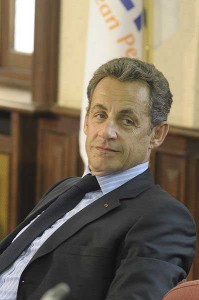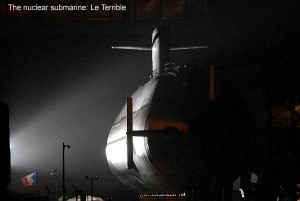“¦French nuclear weapons are designed to protect areas potentially far beyond French borders.
In a changed world, this was in line with the traditional policy of France. Already in 1994, a White Paper on Defence had expressed reservations about the relevance of ‘conventional deterrence’ as a possible substitute for nuclear weapons.
In his 2006 speech (entirely devoted to the problem of deterrence and nuclear capability), President Chirac described nuclear deterrence as the very foundation of French defense policy: ‘‘[Our] defense policy relies on the certainty that, whatever happens, our vital interests will be protected. That is the role assigned to nuclear deterrence, which is directly in keeping with the continuity of our strategy of prevention. It constitutes its ultimate expression.’’
Paris’ policy remained unchanged, except for minor additions.
The Cherbourg Speech
On March 21, 2008, President Nicolas Sarkozy reiterated the French nuclear doctrine in a speech in Cherbourg at the occasion of the launch of the nuclear submarine Le Terrible. For the first time, a French President dealt at length with the problems of disarmament. He also clarified the French position, which has always been doubtful about the ‘Global Zero’ level advocated by some other countries (particularly President Obama in his Prague speech of April 2009).
 I am quoting from President Sarkozy’s speech:
I am quoting from President Sarkozy’s speech:
- [addressing the technicians, officers and staff of the submarine] Like your predecessors, you may take pride in this submarine — a symbol of France’s high technology and resolve to remain master of its destiny.
- I have come to tell you that maintaining, at the highest level, the capabilities required for deterrence is an objective that is fundamental to our security.
- The nation has not forgotten them and will never forget them. [About the 11 technicians and engineers who were killed in a ‘terrorist’ attack in Karachi in May 2002].
- Thanks to the construction of Europe and the Atlantic Alliance, we have built a Europe of peace. Never in history has our national security been so intimately tied to that of our allies and our European partners. Our common destiny lies with the European Union and beyond that, with all nations that share our values: peace, freedom, fraternity, the defense of the equal and irreducible dignity of human beings regardless of color, creed and origin.
- But peace can never be taken for granted. Mass terrorism has shown us this. Today we are facing the assertiveness of new powers, new ambitions, new threats and thus new rivalries. …In this interdependent world, our interests have no borders, even if they have a geographical location.
- France [should not] prepare for the previous war, as it has done all too often in the past, or to find itself unarmed in the face of a strategic surprise.
- I owe our armies transparency and truth. I owe transparency and truth to the entire French people.
- I have chosen to build the future with a few simple guideposts: our strategy, our ambitions, our alliances, the European objective. And a principle that is simple as well: I absolutely reject the idea of lowering our guard. The defense budget is the State’s second-largest budget. It will remain so.
- The White Paper Commission has acknowledged that the ‘Armed Forces-Model 2015’ was obsolete. Everybody knows it was unrealistic, and yet no one told the French. Well, I am telling them.
- To ensure the French people’s protection, their defense structures must be as operational and efficient as possible. I will draw all conclusions with the maximum degree of realism.
- My first duty as Head of State and Head of the Armed Forces is to ensure that France, its territory, its people and its republican institutions are secure in all circumstances. And that in all circumstances, our national independence and decision-making autonomy are preserved. Nuclear deterrence is the ultimate guarantee of that.
- That is why we are so attached to our nuclear deterrent. It is strictly defensive. The use of nuclear weapons would clearly be conceivable only in extreme circumstances of legitimate defense, a right enshrined in the UN Charter.
- In the framework of nuclear deterrence, it would be possible, in that event, to send a nuclear warning that would underscore our resolve. That would be aimed at reestablishing deterrence.
- As for the Atlantic Alliance, its security is also based on nuclear deterrence. British and French nuclear forces contribute to it. This has been part of NATO’s Strategic Concept since 1974 and it remains relevant today.
- As for Europe, it is a fact: By their very existence, French nuclear forces are a key element in Europe’s security. Any aggressor who might consider challenging it must be mindful of this.
Notes
17. Particularly Edgar Faure and Felix Gaillard.
18. Amongst other things, to construct 2 nuclear submarines.
19. President between 1974 and 1981.
20. Chirac shifts French doctrine for use of nuclear weapons by Ann MacLachlan and Mark Hibbs, Global Research, February 12, 2006.





